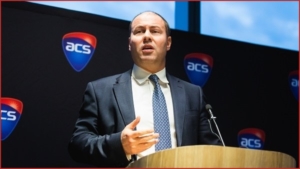Australian Treasurer Josh Frydenberg officially launched the ACS Australia’s Digital Pulse 2019 earlier this month. The Melbourne Innovation Hub was packed with technologists who heard the Treasurer speak of growing demand for more tech workers.
Key findings from the report include:
- Three policy priorities for driving the growth of Australia’s digital economy are boosting skills, start-ups and investment. The highest priority of these is skills development.
- Digitally enabled growth requires investments in new technologies. Capital is globally mobile, and Australia must be an internationally competitive destination in order to attract the investment required to drive future growth and innovation.
- Contribution of digital to GDP is expected to grow 40 per cent between 2018-2023 – the equivalent of an extra $2,500 for every person in Australia every year.
- The benefit from reskilling workers in other professional industries to meet employer demand for technology skills by 2024 could potentially be more than $11,000 per employee per year.
- In the vocational education and training (VET) sector there was a decline of 11,875 IT subject enrolments between 2016 and 2017. University completions in technology degrees has risen slightly to just under 6,000.
- An additional 100,000 tech workers are still needed by 2024.
The Treasurer highlighted this fact in his launch speech. “You’re going to need an extra 100,000 technology workers by 2024. That’s going to take the technology workforce to some 800,000 people. These are high paying jobs; they are important jobs and the growth in the technology workforce is very important.”

Treasurer Josh Frydenberg speaks at the Digital Pulse 2019 launch.
Frydenberg spoke of the ways technology is disrupting a number of sectors including energy, finance, health, and transport.
“Technology changes with us,” he said.
“It’s more rapid than ever before, its scope and its nature is different than what we’ve seen in previous revolutions.
“And there are some challenges – we’ve got to be very cognisant of that – but if we all remember the values that drive us, the things that are important to us and ultimately we’re focused on the consumer and the public, then we can use this technology revolution for good.”
On the night, Frydenberg also officially opened the Melbourne Innovation Hub and was presented with the gift of a large tennis racquet – a reference to his pursuit of a professional tennis career in the 1990s.
Produced in partnership with Deloitte Access Economics, Digital Pulse is an annual snapshot of Australia’s IT sector.
John O’Mahony, partner with Deloitte, said Digital Pulse was succeeding as a conversation starter.
“The agenda of this report has always been to take technology out of the IT department, out of individual portfolios, and into the mainstream economic debate.”
The report highlighted a need for another 100,000 tech workers in Australia by 2024, which O’Mahony sees as a wake-up call to push for further development of our native workforce.
“It’s wonderful that Australia has welcomed so many people from overseas to assist with the growth of our digital workforce,” O’Mahony said.
“That’s okay for this year and next year but over the next five or ten years we really are missing an opportunity if we aren’t encouraging our young people – especially young women – to a technology future.”
Three stand-out policy areas were identified in the report: skills development, improving the start-up ecosystem, and boosting tech investments.
ACS CEO, Andrew Johnson, used the launch as an opportunity to pitch a policy idea to the Treasurer.
“Capital today is highly mobile and globally mobile,” Johnson said.
“We need to make it more attractive to keep growing some of our capital here and that would in fact offer a multiplier effect.”
He pointed out how the Seed Enterprise Innovation Scheme in the UK offers greater benefits to tech investors than Australia’s Early Stage Innovation Company Scheme.
“The English, leading into Brexit, they need friends – and we can be friendly,” Johnson said.
“We could argue that UK investors who put money through their scheme should continue to get those tax breaks if it comes through to Australian companies.
“Knowledge and technology transfer back to the UK economy is very valuable. I reckon that’s a winner.
“I reckon we know who can push that, too,” he said.






